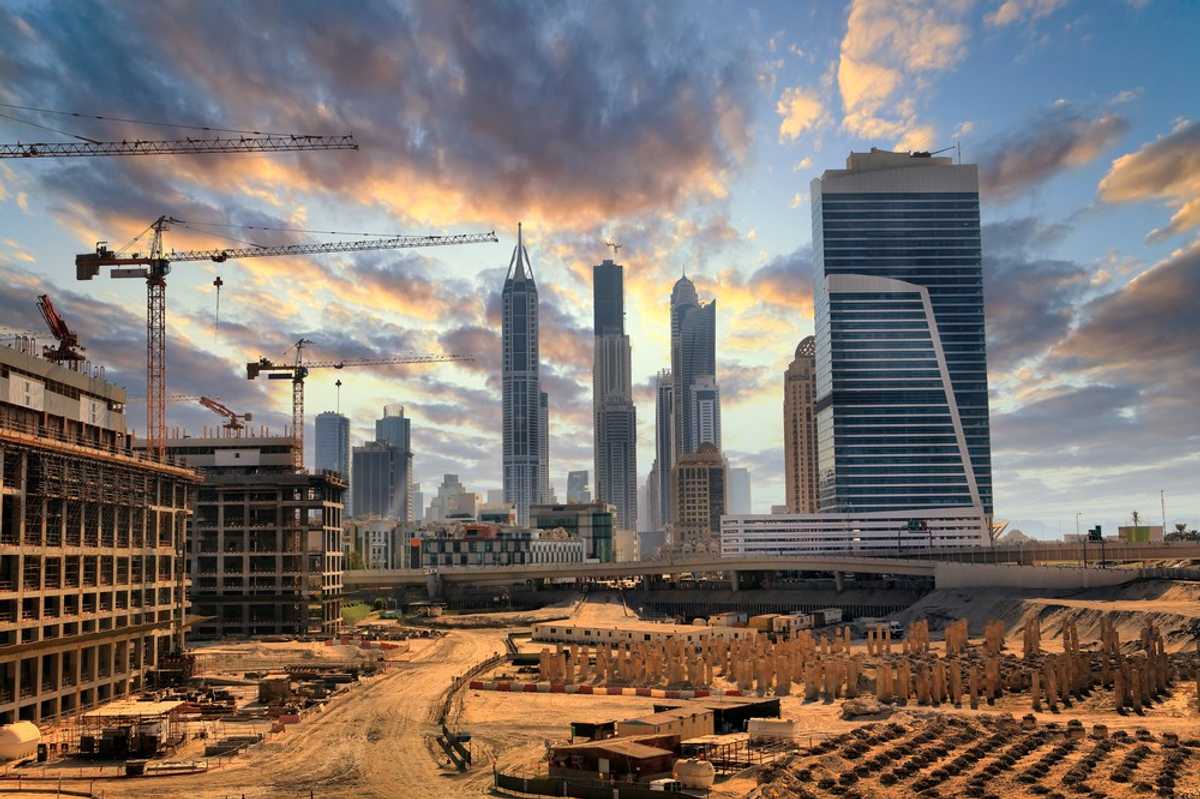UAE industrial real estate in 2024: growth, tech, and sustainability
The UAE’s industrial market sees rising demand, rental growth, and a focus on sustainability, driven by e-commerce, logistics, and manufacturing sectors.

Rana Tabbara
Senior Business Producer
Rana Tabbara is a UAE-based reporter and content creator known for dynamic storytelling, impactful reporting, and high-profile interviews. She interviewed leaders including the UAE Minister of Energy, the Australian Prime Minister, the Saudi Minister of Tourism, the Armenian Minister of Economy, and CEOs of major companies. Rana covered big events like the World Government Summit, LEAP, Cityscape KSA, IDEX, among others. Her previous experiences include The New York Times, CNN Business Arabic, and L'Orient-Le Jour.

In 2024, the UAE's industrial real estate market is experiencing robust growth, with demand outpacing supply in key areas like Dubai and Abu Dhabi.
Shutterstock
The UAE’s industrial and logistics market is experiencing rapid growth, largely driven by demand from e-commerce, logistics, and manufacturing sectors.
According to Cushman & Wakefield's UAE Industrial Market 2024 Report, industrial rents have risen significantly in Dubai and Abu Dhabi, as demand continues to outstrip supply. Dubai saw a 13% year-on-year rental increase, while Abu Dhabi reported a 5% growth, underscoring the market's strength as businesses seek modern facilities for expansion.
Growth in demand
Dubai, a key global logistics hub, is experiencing strong demand for industrial space. The report highlights the role of strategic areas like Jebel Ali Free Zone and Dubai South, which have become focal points for multinational companies expanding their regional footprints. These hubs offer close proximity to major airports and ports, which is essential for businesses that rely on global supply chains.
Abu Dhabi's growth, meanwhile, is focused on manufacturing and logistics infrastructure. Khalifa Economic Zones Abu Dhabi (KEZAD) plays a pivotal role in attracting international companies. The report notes that Abu Dhabi’s investment in industrial infrastructure aligns with the government’s economic diversification efforts, which focus on reducing reliance on oil and fostering growth in sectors like high-tech manufacturing and renewable energy.
Technological innovation
The UAE's industrial real estate sector increasingly integrates advanced technology to meet market needs. The rise of e-commerce and logistics operations requires tech-enabled warehouses that use automation, robotics, and IoT (Internet of Things) to improve operational efficiency. Cushman & Wakefield emphasize that such modern facilities, especially tech-integrated ones, are more attractive to tenants and investors alike. This trend is particularly visible in Dubai South, where industrial spaces are built with technology in mind to cater to the needs of high-tech logistics providers.
Older facilities that lack these technological features are becoming less competitive, with tenants preferring newly developed or upgraded spaces that can accommodate modern equipment. As a result, developers in the UAE are focusing on building and retrofitting industrial spaces to meet the evolving needs of tenants in the logistics, e-commerce, and tech industries.
Sustainability Initiatives
Sustainability is playing an increasingly important role in the development of industrial real estate in the UAE. The government’s Green Agenda 2030 and Net Zero by 2050 initiatives are encouraging developers to incorporate sustainable practices in construction. Energy-efficient designs, the use of renewable energy, and water conservation are becoming key features of industrial developments.
The 2024 report notes that areas like Dubai South have integrated sustainable infrastructure plans that benefit both the environment and operational efficiency for tenants.
This is a trend that resonates with the global shift towards sustainability, especially in the logistics and manufacturing sectors, where companies are looking to reduce their carbon footprints.
The adoption of green practices, such as using electric vehicles for transportation and optimizing supply chains to lower emissions, is further boosting the attractiveness of the UAE’s industrial market.
Key development zones
Dubai South, Jebel Ali Free Zone, and Abu Dhabi's KEZAD are the main hubs for future growth. These zones offer strategic advantages in terms of location, connectivity, and infrastructure, making them ideal for businesses involved in logistics and manufacturing. Jebel Ali Free Zone, for instance, continues to be a key area for global companies looking to expand operations, thanks to its proximity to the world’s busiest shipping routes.
In Abu Dhabi, KEZAD remains a cornerstone of the emirate’s industrial strategy, supporting various manufacturing sectors, including renewable energy. The report highlights that these areas are undergoing expansions and upgrades to accommodate increasing demand from both domestic and international businesses.
Investment opportunities
Global investors are increasingly attracted to the UAE’s strategic location and growing industrial infrastructure. Investors are focusing on high-quality, tech-enabled spaces, with many speculative developments in the pipeline to meet anticipated demand. As industrial spaces in key areas like Dubai and Abu Dhabi continue to perform well, the long-term outlook for the sector remains positive.
The UAE’s industrial real estate market is expected to maintain its upward trajectory, fueled by strong demand from the logistics, e-commerce, and manufacturing sectors. As Cushman & Wakefield’s report suggests, government initiatives aimed at fostering economic diversification and promoting sustainability will further support this growth.
With rising rents, increasing demand for modern, tech-integrated spaces, and a growing focus on sustainability, the UAE’s industrial real estate market is well-positioned for continued expansion in the coming years. Developments in Dubai South, Jebel Ali Free Zone, and KEZAD exemplify the future direction of industrial real estate in the country, offering significant opportunities for developers and investors alike.







Comments
See what people are discussing